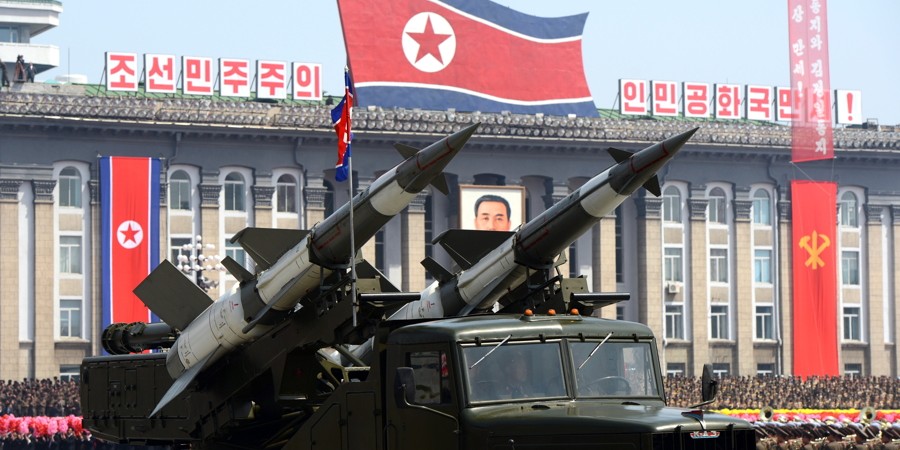Wednesday, Mar. 8

HERMIT OR THE BEAST? NORTH KOREA

The UN Security Council will convene an emergency session in New York on Wednesday morning to discuss North Korea’s launch of four ballistic missiles into the Sea of Japan.
Monday’s missile test – the second in as many months – presents a challenge for US President Donald Trump. This is not a coincidence – analysts have warned for months that Pyongyang would seek to test the new administration with such behaviour.
Mr Trump’s response has been strong and clear. On Tuesday, the Pentagon announced it was deploying the THAAD missile system in South Korea. The Lockheed Martin creation is designed to shoot down the kinds of ballistic missiles of which Pyongyang has grown increasingly fond.
The deployment of THAAD will anger China, which has already issued restrictions on Chinese tourists travelling to South Korea and done little to discourage rumours of broader economic sanctions. Such measures could devastate the South Korean economy; Credit Suisse estimates that a full travel ban could cost the country one-fifth of its projected economic growth.
With an unstable political situation in Seoul, and Pyongyang seemingly hell-bent on fomenting strife, the Korean peninsula looks less stable than ever.
Dig deeper: Political volatility on the Korean peninsula
PARTNERSHIP BY DEFAULT: GERMANY AND POLAND

Germany’s foreign ministers always visit its eastern neighbour on their first Eastern European trip. Not so with Sigmar Gabriel. His first call was to the Baltic states and Ukraine, which spoke to both the urgency of confronting Russian aggression and Berlin’s displeasure with Poland’s move away from liberal democracy. Gabriel’s visit to Warsaw on Wednesday will be his first as foreign minister, and he will meet with his Polish counterpart to discuss bilateral relations and European security.
German-Polish relations have deteriorated since 2015. That year witnessed both the European refugee crisis and the election of the nationalist-conservative Law and Justice party (PiS). PiS has passed legislation allowing parliament to disempower the constitutional court and take control of public media channels. These attacks on the rule of law and freedom of expression have made Berlin deeply uneasy. Warsaw has also denounced Germany’s liberal refugee policy as naive and irresponsible, deepening the rift.
Yet the Russian threat forces the two neighbours to work together. Gabriel will meet with his counterpart to deepen security cooperation and reinforce their unified stance on maintaining sanctions imposed in response to Moscow’s activities in eastern Ukraine. There’s nothing like an external threat to bring together ideological opposites.
UK BUDGET: LESS SPENDING, MORE TAXING

Chancellor Philip Hammond will present the budget on Wednesday, the UK’s first since it voted to leave the EU in June.
Coming just weeks before the government is expected to trigger Article 50 and begin Brexit negotiations, the budget will seek to provide a pre-emptive cushion for the single-market exit.
Currency depreciation will boost export competitiveness in the short-term and could somewhat reduce the UK’s long-running trade deficit. However, in the medium-term this benefit is expected to be largely negated by increased consumer spending on imported goods.
Ominous predictions of stagflation (low growth and high inflation) have prompted the May government to vigorously pursue new free trade agreements, but this may be an overly optimistic strategy. Trump’s aggressive economic nationalism means he is likely to demand deeper market access to rebalance his country’s long-running deficit in goods trade with the UK.
Mr Hammond is expected to announce measures to drum up funds domestically, hiking duties on alcohol and taxes on the self-employed. He also plans to dramatically reduce government borrowing by $12 billion. Brexit is starting to bite.
HAPPENING ELSEWHERE…
Two key committees – Energy and Commerce, and Ways and Means – are due to begin debating and revising a Republican proposal to replace Obamacare. The proposal, announced on Monday, has already come under fire from some Republicans for being a “welfare entitlement”.
Dutch nationalist leader Geert Wilders is expected to stage a public protest against Turkish ministers campaigning for President Erdogan’s upcoming referendum. While Mr Wilders has led the polls for weeks, his lead is narrowing ahead of next Wednesday’s vote. Even if his anti-EU Freedom Party does secure the most votes, it’s unlikely to be able to form a ruling coalition.
A slew of Chinese economic data will be released; most notable among them will be February’s figures for imports and exports – an important indicator of economic health.


